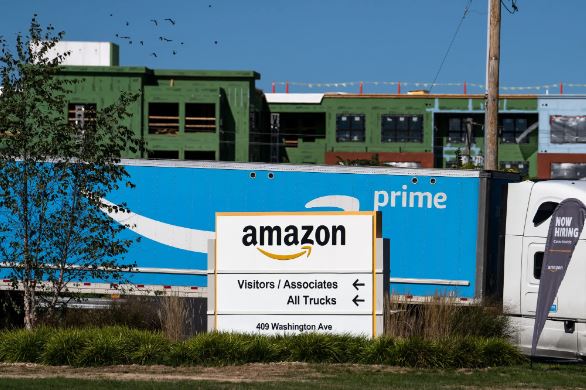On Tuesday, the Federal Trade Commission and seventeen states filed a lawsuit against Amazon, initiating an antitrust battle that may affect how Americans buy everything from toilet paper to gadgets online.
The federal government’s most serious challenge to Amazon’s dominance thus far was a 172-page lawsuit that accused the company of preserving a monopoly over large portions of the online retail industry by unfairly competing with its own vendors and promoting its own services.
The complaint claims that consumers paid “artificially higher prices” because Amazon prevented other retailers from selling their items at lower costs and because the company favoured its own offerings and cluttered search results. According to the agency and the states, the retailer’s actions rendered it difficult for its competitors to stay in business.
As a “everything store” for its wide selection of items and lightning-fast shipping, the company’s online marketplace is largely responsible for Seattle-based Amazon’s success. Amazon’s dominance in the e-commerce industry has reshaped the world of business, influenced the working conditions of over a million warehouse employees.
Now Amazon, which has rejected the allegations in the case, joins the ranks of other major tech firms going up against the government over monopoly fears. This comes as the Justice Department’s antitrust trial challenging Google’s dominance in online search enters its third week. The F.T.C. has also filed a complaint against Meta, the parent company of Instagram, Facebook, and WhatsApp, on antitrust grounds. Legislation to restrict some of the firms’ most prevalent business practises has been explored by members of Congress.
This latest case is the long-awaited showdown between Amazon and F.T.C. head Lina Khan. In 2017, she submitted a thesis as a Yale law student alleging that American antitrust laws had failed to sufficiently prevent Amazon from gaining dominance over its consumers, competitors, and suppliers, and she quickly rose to prominence. This study was significant in launching a discussion regarding whether or not U.S. antitrust laws required updating in order to rein in digital behemoths.
An injunction prohibiting Amazon’s “unlawful conduct” was among the remedies proposed by the F.T.C., which also suggested restructuring the firm. It didn’t go into depth, however, on the ways in which the court may curb Amazon’s dominance, such as by dismantling its operations. If the government is able to show that Amazon broke the law, it may provide further details.
According to the complaint, if Amazon discovers that the same goods can be purchased elsewhere at a lower price, it will remove those two buttons and replace them with less tempting language and images. Losing the Buy Box would “tank” retailers’ sales, the complaint claims, and the corporation knew it. It said that in alternative marketplaces, vendors maintained high prices so that they could stay in business.
The complaint claimed that by requiring sellers to utilise Amazon’s fulfilment and shipping services, the corporation was making it difficult for them to take advantage of Prime’s millions of customers.
Despite the attention, Amazon, which earns more than $500 billion annually, has continued expanding. It has invested heavily in the James Bond film franchise through its purchases of One Medical, a network of primary care practises; iRobot, the maker of the Roomba; and the legendary movie studio Metro-Goldwyn Mayer, in the previous three years. These acquisitions have bolstered the company’s already substantial holdings in e-commerce, cloud computing, and streaming video in an effort to better compete with the likes of Netflix.
After hearing several complaints from competitors and critics, the F.T.C.’s competition unit began looking into Amazon’s operations in the summer of 2019.
According to a source familiar with the probe, Amazon delivered records and information to the F.T.C. by June 2021, when President Biden chose Ms. Khan to be the agency’s chair. A new group was assembled under Ms. Khan’s direction to handle the antitrust investigation, the source said.
The F.T.C.’s action is similar to one filed by European Union regulators, which led to Amazon altering several of its business practises. The business deleted certain contractual wording that prevented merchants from discounting items elsewhere and last year reached a settlement in Europe that will see it broadcast deals from more merchants on individual product pages.
According to a source familiar with the company’s thinking, Amazon is also shutting down the majority of its private label brands since they did not attract enough customers. In June, Amazon said it will reopen enrolment for a programme that lets retailers provide Prime-eligible items but handle their own shipping instead of utilising Amazon’s fulfilment centres.

